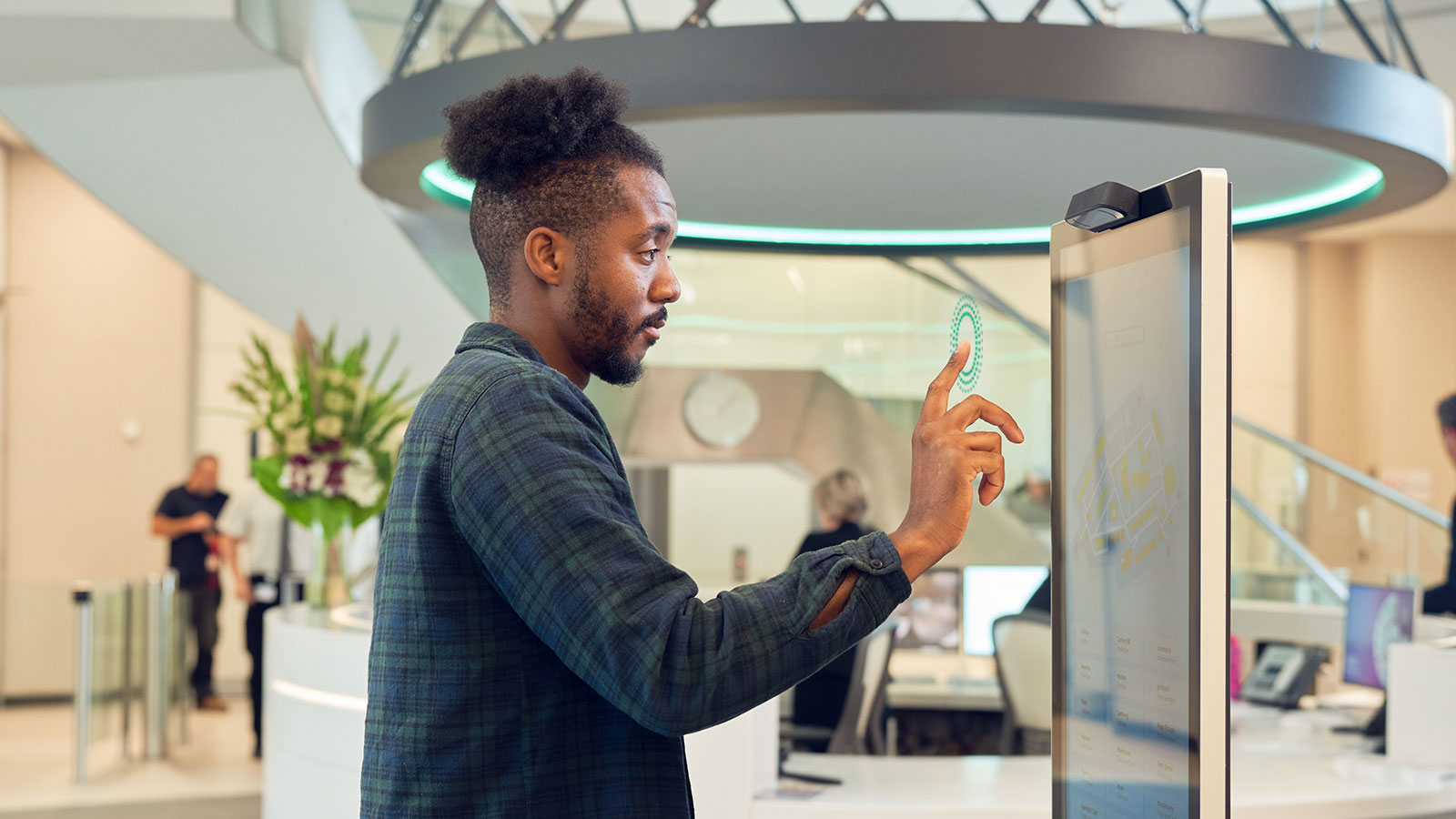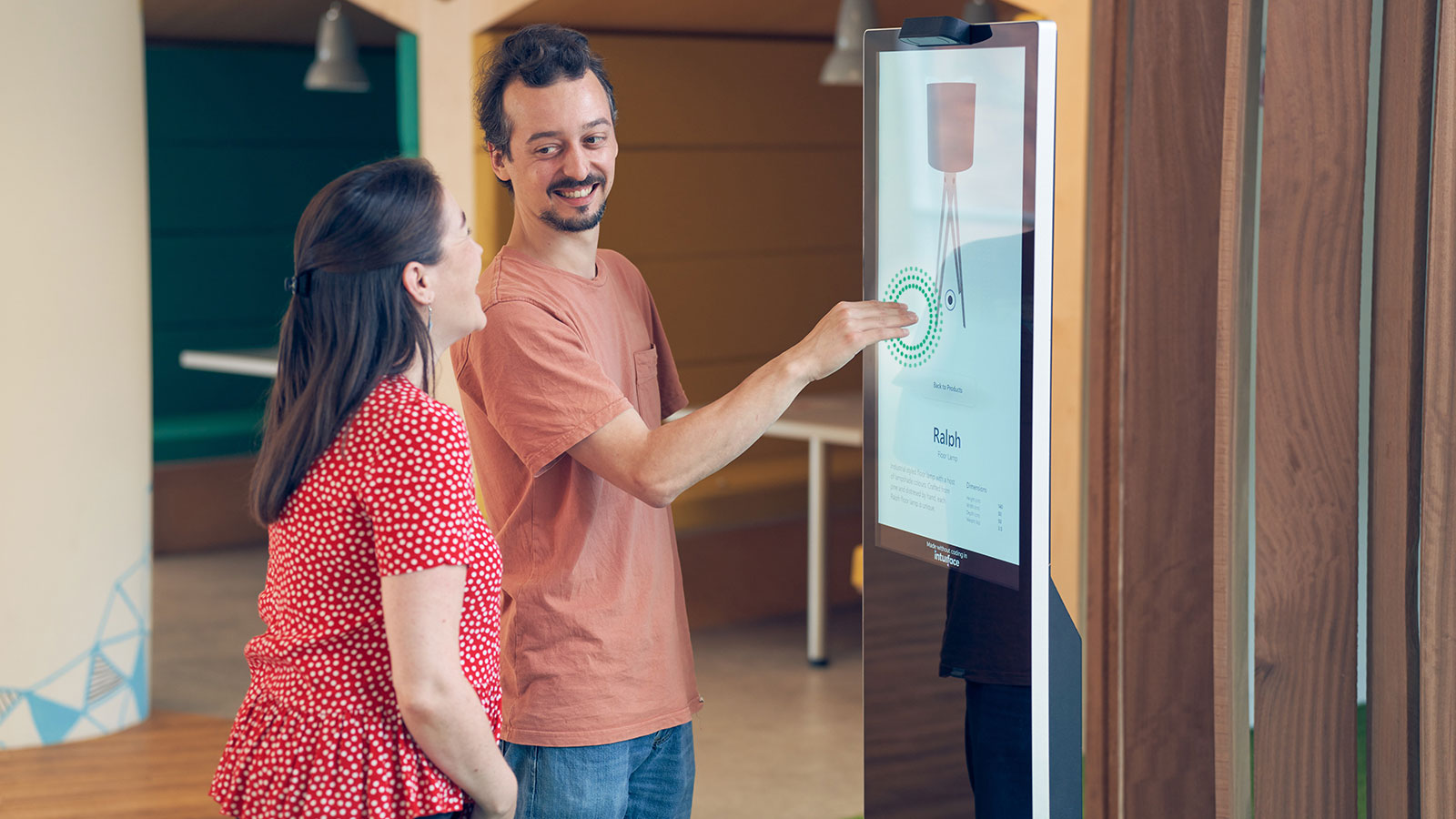
Consumer aversion to touchscreen germs here to stay
Posted; August 4, 2022
Consumers' hygiene concerns of public touchscreens are broader than just COVID-19
New research has found that consumers across the world are still concerned about using public touchscreens due to fears of germ transmission. Some are even changing their behaviour to avoid using them altogether in public venues.
Today Ultraleap, the natural user interface company, releases the results of a global consumer survey that was conducted in the UK, US, China and Japan and looks at attitudes to public touchscreens. It reveals that more than half of consumers in these markets (52%) are concerned about touchscreen hygiene, and those concerns are broader than just COVID-19.
The survey also found that the majority of respondents (72%) are also changing their behaviour at least sometimes to avoid germs on public touchscreens and nearly a third (29%) are always changing their behaviour. These behaviours include: touching the screen as little as possible (25%), using hand sanitizer before (29%) or after (45%) touching the screen, or even avoiding places where they have to use a touchscreen (10%).
This avoidance behaviour is likely to have a direct commercial impact on retailers and brands. Touchscreens provide autonomous service points for consumers, while also providing a commercial uplift in certain environments. It's reported that self-service kiosks bring in higher-than-average order sizes, and require fewer staff at checkout in QSR environments.

“Fast food restaurants like McDonald’s and Burger King rely on self-service touchscreens to upsell more food and drink. If people are actively not using them, then brands are losing revenue opportunities. Our report demonstrates that offering a touchless option on their self-serve kiosks can provide a solution that caters to all consumers - especially those who are more hygiene-conscious. Doing so can help generate incremental revenue of between $1,800 - $4,500 per month in a QSR location,” said Saurabh Gupta, Vice President of Out-of-Home Product at Ultraleap.
The research also reveals that consumers are not only open to (83%) but are actively positive about touchless solutions as an alternative to touchscreens - 68% of respondents said that they’d be more likely to visit a grocery store or fast-food restaurant if it offered a touchless self-service screen.
Saurabh Gupta continued: “It's clear people are still worried about the potential germs that lurk on touchscreens – and it looks like those concerns are here to stay.
“Brands have a real opportunity to utilise innovative technologies like Ultraleap’s hand tracking and create touchless solutions that ease consumer hygiene concerns and create more revenue opportunities.”
PepsiCo is one company that created a bespoke, innovative touchless menu for food and drink ordering using Ultraleap’s gesture control technology, which customers loved. In fact, 85% said they’d be extremely likely to use the touchless kiosk again.
Mia Sorgi, Director of Digital Product and Experience at PepsiCo commented: “The future of immersive digital commerce is just around the corner, and gestural interfaces are sure to be a growing part of this landscape… the possibilities are endless for how we can use it to benefit our customers – and our restaurant partners.”
Ultraleap’s innovative touchless technology allows you to interact with digital content without having to touch a screen. Integrating their hand tracking technology and award-winning TouchFree application into self-serve kiosks and digital signage delivers safe and engaging consumer experiences.
Download the full report here.
– ENDS –
Headline statistics of the report:
- 52% agreed or strongly agreed with the statement "I think public touchscreens are unhygienic.”
- 29% report always changing their behaviour around public touchscreens to avoid germs.
- 25% of consumers touch the screen as little as possible.
- 10% of consumers claim actively to avoid places where they must use touchscreens.
- 83% would be open to using a touchless solution in a store or restaurant.
- 68% would be more likely to visit a store or restaurant offering touchless self-service.
Country by country breakdown is available on request.
Notes on Methodology
Ultraleap surveyed over 2000 consumers across the UK, US, China, and Japan. The company used SurveyMonkey’s targeted panels to strive toward a nationally representative sample of 500+ respondents in each market. The samples were balanced for age and gender.
About Ultraleap
Ultraleap’s world-leading hand tracking and unrivalled mid-air haptic technologies allow you to engage with the digital world naturally - without touching surfaces. No touchscreens. No controllers. No keypads. From enhancing 2D screens to developing fully immersive 3D experiences, Ultraleap powers natural, safe and effortless digital interaction in the increasingly connected world.
Ultraleap employs more than 150 people across Europe, North America and Asia. It has become the first to offer the full vertical stack of software and hardware to enable spatial computing for the automotive, out of home, industrial, XR, entertainment and medical sectors.
More information:
(Interviews available on request).
Media Enquiries:
Tessa Urlwin
Ultraleap
+44 (0)7741 851 070
tessa.urlwin@ultraleap.com